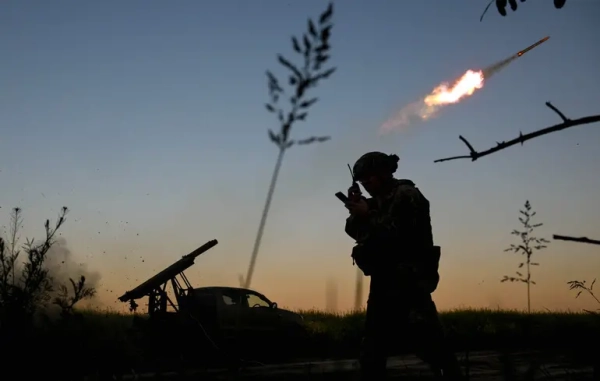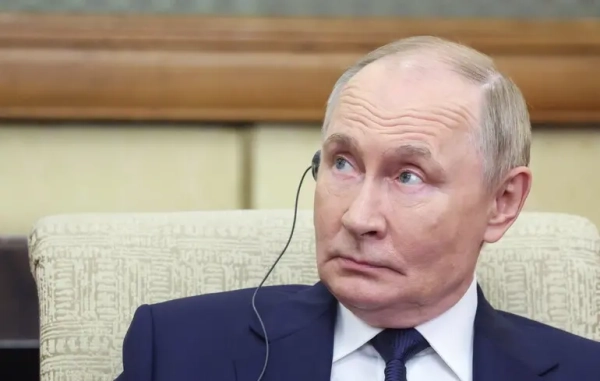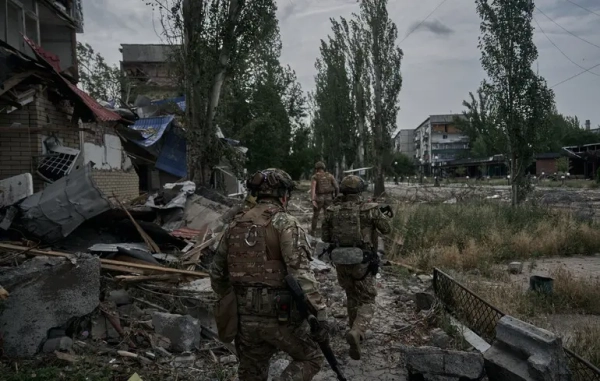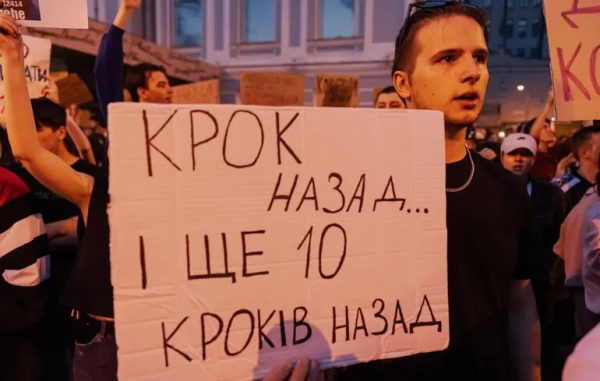
© Getty Images According to the journalist, Europe only talks, but does nothing.
Europe is lying to Ukraine. No troops will come to its aid. The coalition of the willing meeting on September 4 made many bold statements, including an agreement in principle on what French President Emmanuel Macron called “the forces of calm in Ukraine.”
But there is one problem with Macron’s plan, and its name is Vladimir Putin. European leaders have refused to negotiate with the Kremlin since Russia’s full-scale invasion began, which perhaps explains why they seem to be failing to hear Putin’s oft-repeated message that he is categorically opposed to a NATO military presence in Ukraine. Indeed, it is quite clear that Putin’s primary reason for the invasion was to stop Ukraine’s move westward and to sever its ties with NATO, notes Owen Matthews, a British journalist and historian at The Telegraph.
This makes Macron’s plan to send in European troops part of the problem, not part of the solution. Putin will never agree to NATO peacekeepers, so why are the Europeans even talking about them? The only answer is another empty show of “solidarity” with Volodymyr Zelensky.
But in reality, Zelensky — like all Ukrainians — has good reason to be deeply irritated with his EU allies. Yes, military aid from Europe and the United States has enabled Ukraine to contain a much larger Russian army, but three and a half years of war have been accompanied by constant delays and insufficient supplies.
When it comes to fulfilling then-Canadian Prime Minister Justin Trudeau's 2022 promise to provide Kyiv with “everything it needs, as much as it needs,” the West consistently proves to be late and not generous enough.
“This fatal discrepancy between the West's words and actions dates back to Putin's annexation of Crimea in 2014. After this illegal seizure of territory, then-German Chancellor Angela Merkel promised that “Europe's borders are and will remain unchanged,” and declared that Putin's aggression would not be allowed,” the journalist adds.
However, just over a year after these strong words, Germany happily signed a €9.5 billion deal to build a second Nord Stream gas pipeline under the Baltic Sea, increasing Europe’s dependence on the Kremlin and bringing Putin even more money.
It is no wonder that on the eve of a full-scale invasion of Ukraine in February 2022, the Kremlin paid little heed to Western threats of harsh consequences. Putin knew from previous experience that European statements were not backed up by real action.
Although Russia was surprised by Europe's rapid mobilization of military aid in the early months of the war, subsequent disputes over Germany's transfer of Leopard-2 tanks or the US decision on F-16 fighters, Himars jet systems, and ATACMS missiles were a repetition of a familiar pattern: the West tried to support Ukraine in the war while avoiding direct involvement.
“Putin's brutal invasion and his constant attacks on Ukrainian civilians continue to anger Western voters. But no one wants to wage a nuclear war over Donbas,” Matthews argues.
The journalist adds that the same principle applies to the absurd idea of European peacekeepers. Despite Macron's active promotion of so-called “deterrence forces” for Ukraine, about 68% of French people in opinion polls opposed sending their military to a combat zone if the war continues.
But the essence of deterrence forces is that they must be a real military threat, ready to fight and, if necessary, die. And although 26 of the 35 Western countries that joined the coalition of the willing have formally agreed to “send troops or provide resources to support peacekeepers in the air or at sea,” it is worth paying attention to the ambiguous word “or.” Many leaders are ready to express support for peacekeepers, but whether many of them are really ready to send the children of their constituents to die for Ukraine is unknown.
Perhaps the most important thing about the Coalition of the Willing meeting was what was not said. There was no talk of Ukraine joining NATO. This was one of the Kremlin's key demands, which was met .
“And if we decipher Ursula von der Leyen's summary of security guarantees, focused on turning Ukraine into a 'steel porcupine,' it means that when it comes to confronting future Russian aggression, Kyiv will be left on its own, with its allies keeping a safe distance,” Matthews concluded.
The newspaper previously noted that eight months of diplomacy over the war in Ukraine have proven futile. A final settlement — or even a temporary truce — remains as elusive today as it was before Trump's political resurgence.






